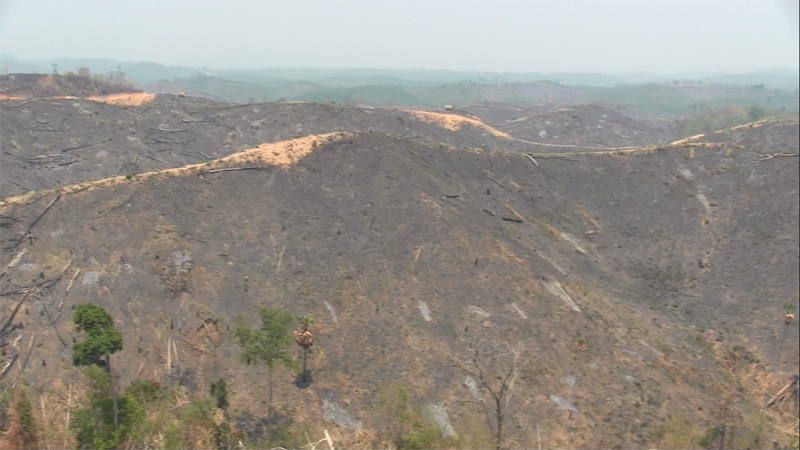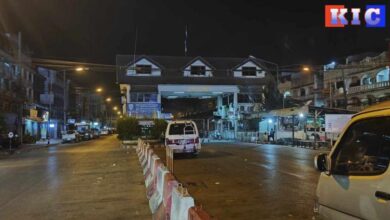KNU: New Land Laws a Major Barrier to Peace

The Karen National Union claims that the Burma’s recently introduced Land Laws could cause problems for the country’s peace efforts. The KNU urged the government to not apply it during the peace building process between the government and ethnic armed groups.
The KNU’s, General Secretary P’doh Saw Kwe Htoo Win, said in a specially video made statement to inform Karen people about its concerns about the Land Laws.
“The 2012 Land Law gives rights to business people to take land or lease land from the government. The Law encourages companies to come and carry out their projects in our areas. The 2012 Land Law is not for our peace building. This is the problem we have tried to address and to inform the government about.”
In 2012 the government passed the Land Laws – the Vacant, Fallow and Virgin Lands Management Law.
This law stipulates that any unused land can be claimed and utilized by willing individuals (foreign or local investors included). This means that people cannot simply purchase land and then leave it vacant or rotate crops – they must make the land economically productive.
Foreign investors involved in joint ventures with Burmese based companies or with the government can apply to use land that is currently not being used. Activities that are permitted include agriculture, mining, raising livestock and other ventures.
Human rights groups claim that the government’s laws contradict with armed ethnic group, such as the KNU. The KNU recognize local ownership of the land through customary law or traditional law. The KNU argues that the new laws do not protect the majority of farmers or ethnic people, as most Karen are rotational farmers and under the new laws, land that is being rotated can be ceased and sold off as unused land.
Pdoh Saw Kwe Htoo Win acknowledges that land confiscation happened under the previous military regime, but during the cease-fire period and with the new government laws gives business and companies the right to carry out their projects in KNU control areas.
KNU General Secretary P’doh Saw Kwe Htoo Win said.
“Land confiscation is not the issue that has just happening now, it occurred during the military regime. Local military leaders used their power to confiscate land. During the armed conflict, some companies could not carry out agriculture and economic projects. But after the ceasefire, it is easier to travel and work – companies have come to our areas and took the land. Land confiscation is a violation of the peoples and of ethnic rights. It creates mistrust that is needed for peace building.”
P’doh Saw Kwe Htoo Win said that the KNU has encouraged villagers to report any incidents of illegal land grabbing and of any land problems they are facing. The KNU said it would bring their claims to the government for investigation and for resolution.
“The land that is illegally seized and that has our [KNU] guarantee, we will gather the information and talk with the government. We agreed with the government in our (previous) talks that KNU issued land registrations the government will recognize, and will also recognize customary law of land ownership. KNU leaders in the areas will collect data of land confiscation send to us so we can discuss with the government.”
“When we meet with the government and the relevant authorities we will bring up this issue and tell them that land confiscation will hamper the peace building process. It makes the people mistrust the government.”
The KNU General Secretary P’doh Saw Kwe Htoo Win confirmed that the 2012 Land Law should be suspended during the peace building process.
“It needs to be reviewed after we have achieve the peace building.”




